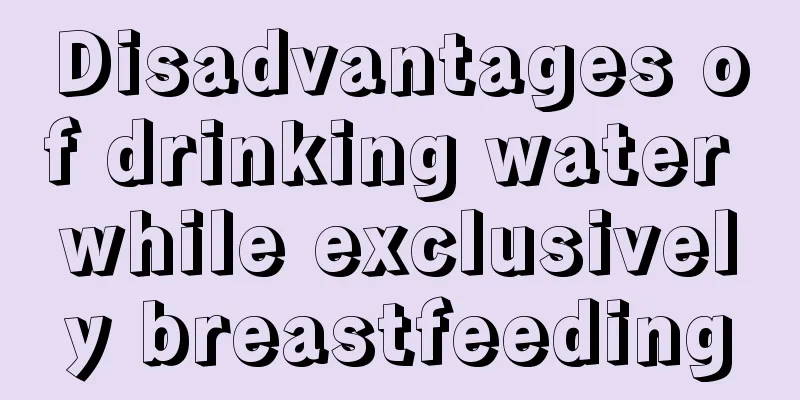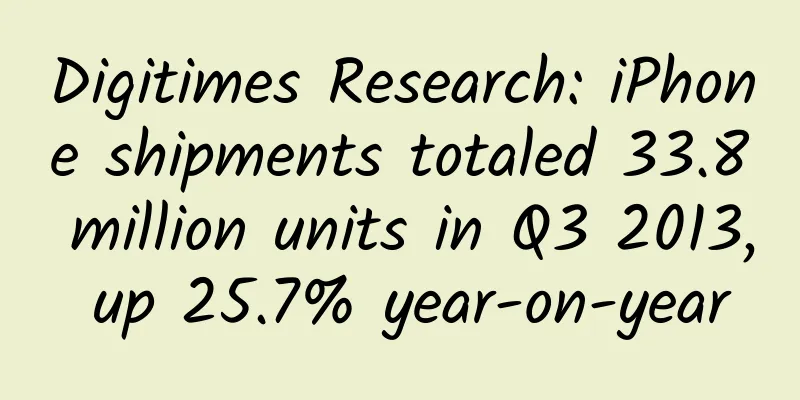Disadvantages of drinking water while exclusively breastfeeding

|
Newly born babies who rely on breast milk do not need to drink water, because breast milk contains a lot of water, so there is no need to give the baby extra water. If the baby drinks water too early, he will feel full and will drink less milk. Once the baby does not like to drink milk, the secretion of milk will be affected. However, if the baby is vomiting or sweating a lot, you can give the baby water. So what are the disadvantages of breastfeeding babies drinking water? The dangers of overfeeding your baby 1. Easy to cause "water poisoning" Giving water to newborns may cause water poisoning. Water intoxication occurs when the blood becomes diluted and the balance of electrolytes in it is disrupted. Too much water can cause water intoxication leading to seizures or coma. 2. Affect appetite Giving water to a newborn baby can affect his appetite. The stomach of a newborn is very small. After he drinks water, his stomach will not be able to accommodate breast milk or formula milk. Newborns mainly absorb nutrients from breast milk and formula milk. Water will reduce the baby's ability to absorb nutrients from food. This will cause malnutrition in the baby. 3. Increase the burden on your baby's kidneys When preparing formula milk for babies, please dilute the milk powder strictly according to the milk powder preparation table. Do not add too much water. Adding too much water will not only reduce the nutritional value of the milk powder, but also increase the burden on the baby's kidneys to decompose it. How should babies aged 0-3 drink water scientifically? 1. Feed water according to feeding method 1. Breastfed babies Generally speaking, babies who have not yet started eating complementary foods (less than 6 months old) have relatively small stomach capacity and rely entirely on breast milk for their diet. 80% of milk is water, so as long as there is enough breast milk, there is no need to give the baby additional water. 2. Babies fed with milk powder Babies who are fed with formula milk are prone to getting hot, so they can be fed with appropriate amounts of water between meals. 3. Babies who are adding complementary food For babies who have started eating complementary foods after 6 months, you can add appropriate amount of water to the baby after eating or between meals. This can help the baby clean the mouth and is beneficial to the health of teeth. In addition, babies also need proper hydration when they are sick with a fever, sweat a lot in the summer, or feel little evaporation after the heating is turned on in the winter. 2. Grasp the correct watering time For babies, drinking water at inappropriate times, such as before meals, can affect their health. Drinking water before meals can dilute gastric juice, which is not conducive to food digestion. Drinking water can make the stomach bloated, which can also affect the baby's appetite. In addition, it is not suitable to feed water to the baby before going to bed. Younger babies cannot control their urination after falling into deep sleep. Excessive urination at night will affect their sleep quality, so mothers should try not to feed their babies water within 2 hours before bedtime. If it is really necessary, try to control the amount of water. |
<<: What are the effects of rhinitis in pregnant women on the fetus?
>>: What should I do if my period doesn’t come at 45?
Recommend
Where are the labia majora?
The labia majora of a woman is located on the inn...
What does ectopic pregnancy mean?
Some friends actually don’t understand ectopic pr...
Can chrysanthemum tea remove bad breath? What is the best tea to drink to remove bad breath?
Scented tea is common in life, especially chrysan...
Strawberries have the most pesticides? Are all large strawberries sprayed with growth enhancers? 7 questions about strawberries answered all at once!
Image from: freepik.com It’s the season for eatin...
Which one has higher calories, scallion pancake or rice? How to make scallion pancake with leavened dough to make it successful?
Scallion pancake is one of our favorite foods. It ...
Can you drink honey water after giving birth? 6 benefits
After giving birth, new mothers will choose food ...
What foods are better for gynecological inflammation?
Gynecological inflammation is a very big hidden d...
Three months pregnant, shortness of breath
Many women experience shortness of breath during ...
How to relieve the pain of dysmenorrhea
Many women always have dysmenorrhea. Every time t...
Symptoms and diagnosis of enlarged ovaries
Enlarged ovaries may manifest as a movable mass i...
What happened to the Converse mini program? When will the Converse mini program be fixed?
What happened to the Converse Mini Program? Today...
What is the common sense of safe period contraception?
Some people think that there is no need to use co...
Popular Science丨How Much Do You Know About Orthodontics
Every tooth has its own "temperament", ...
What injections should I take for low estrogen levels?
Low estrogen levels have a greater impact on huma...









